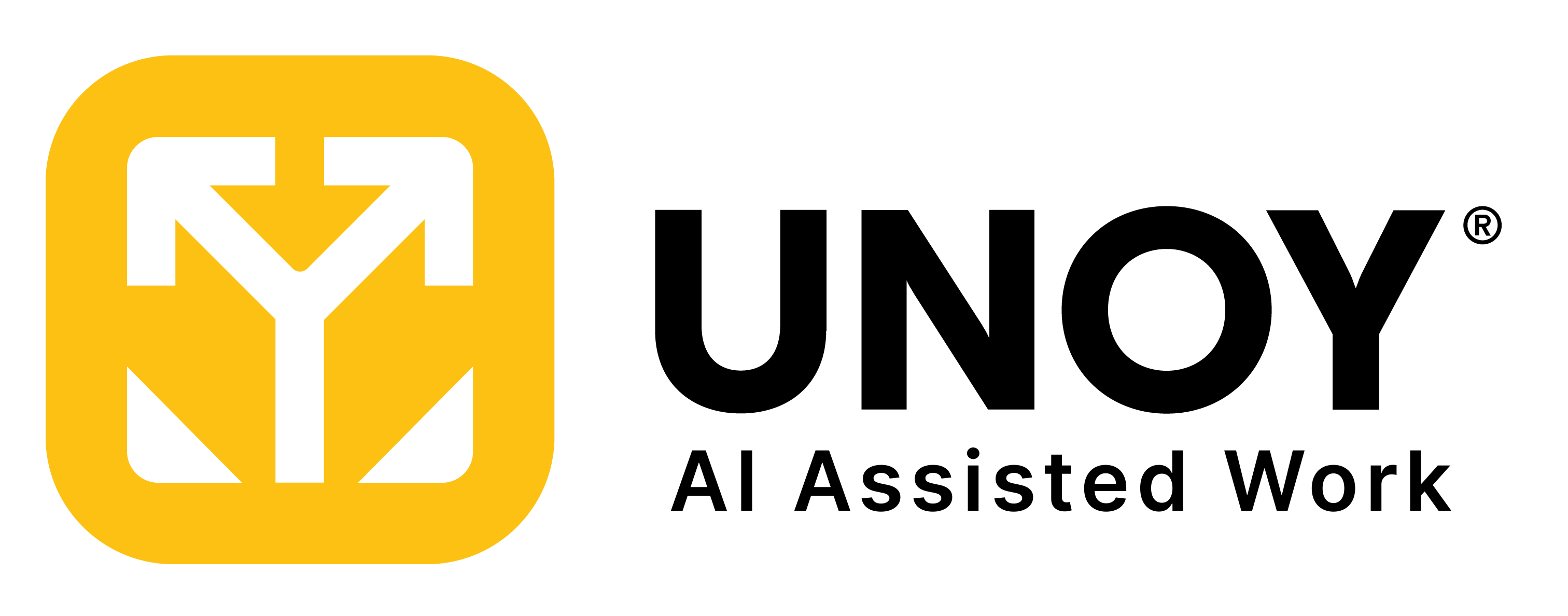Die erfolgreiche Integration von No-Code-Plattformen - Teil 1: Management als Schlüsselfaktor
In der heutigen Geschäftswelt, in der Software und Digitalisierung zu zentralen Wettbewerbsfaktoren geworden sind, gewinnen No-Code-Plattformen zunehmend an Bedeutung. Sie versprechen nicht nur Effizienz, sondern eröffnen auch neue Wege der Zusammenarbeit zwischen Geschäftsbereichen und IT. Um dieses Potenzial auszuschöpfen, ist eines unerlässlich: ein aktives und strategisch denkendes Management.
UNOY unterstützt Unternehmen in diesem Prozess - von der strategischen Plattformauswahl über die Befähigung der Mitarbeiter bis hin zur Integration in bestehende Strukturen.
Digitalisierung gestalten statt nur verwalten
Unternehmen, die zukunftsfähig bleiben wollen, müssen digitale Projekte initiieren und neue Geschäftsmodelle entwickeln. Laut Elshan et al. (2023) geht die Bedeutung digitaler Produkte inzwischen weit über die einfache Prozessautomatisierung hinaus - sie verbessern Dienstleistungen, schaffen neue Werte für bestehende Kunden und ermöglichen völlig neue Angebote.
No-Code-Plattformen helfen, die klassischen Hürden der Softwareentwicklung zu überwinden. Sie ermöglichen es den Geschäftsbereichen, ihre eigenen Anwendungen zu erstellen - eng an den praktischen Bedürfnissen orientiert und mit deutlich kürzeren Entwicklungszyklen.
In vielen unserer Projekte bei UNOY sehen wir, wie No-Code-Ansätze Unternehmen dabei helfen, internes Wissen schneller in digitale Lösungen umzusetzen - vorausgesetzt, das Management schafft die notwendige Struktur und Orientierung.
No-Code als Führungsaufgabe: Warum Management unerlässlich ist
Die Einführung einer No-Code-Plattform ist nicht nur eine technische Entscheidung, sondern auch eine organisatorische Maßnahme. Sie verändert die Rollen, Prozesse und Verantwortlichkeiten:
- Bewusste Auswahl der Plattform: Die Auswahl der richtigen No-Code-Tools muss strategisch geführt werden. Faktoren wie Datensicherheit, Schnittstellen, Benutzerfreundlichkeit und langfristige Tragfähigkeit sollten von der IT und den Fachabteilungen gemeinsam bewertet werden (Lingenhel, 2023).
- Festlegung von Rahmenbedingungen und Zuständigkeiten: No-Code kann nur dann langfristig erfolgreich sein, wenn das Management die Zuständigkeiten klar verteilt - zum Beispiel für Schulung, Support und Governance.
Mit dem UNOY Capability Framework helfen wir Unternehmen, diese Managementaufgaben systematisch zu strukturieren - inklusive Rollenmodellen und Umsetzungspfaden für die Bürgerentwicklung.
Veränderungsmanagement: Befähigung als Führungsverantwortung
Codefreie Plattformen verändern die Art und Weise, wie Menschen arbeiten. Die Mitarbeiter übernehmen neue Rollen, insbesondere als Bürgerentwickler. Das bedeutet Wandel - und der erfordert Unterstützung:
- Strukturierung von Schulungs- und Beratungsangeboten: Ohne systematisches Enablement bleibt das Potenzial ungenutzt. Unternehmen brauchen durchdachte Trainingskonzepte, internes Coaching und einheitliche Standards (Prinz et al., 2024).
- Wertschätzung und Beteiligung sicherstellen: Bürgerentwickler sind keine "IT light", sondern Schlüsselfiguren der digitalen Transformation. Sie brauchen Anerkennung, Entscheidungsfreiheit und klare Entwicklungswege.
UNOY entwickelt maßgeschneiderte Enablement-Programme für Unternehmen - angepasst an bestehende Teams, Vorerfahrungen und strategische Ziele.
Die richtigen Leute auswählen - zielgerichtet und integrativ
Wer ist geeignet, ein Bürgerentwickler zu werden? Die Erfahrung zeigt, dass Mitarbeiter mit Excel-, VBA- oder Prozesskenntnissen oft eine gute Grundlage haben (Itäkylä, 2021). Ein strukturierter Auswahlprozess ist unerlässlich:
- Technische Erfahrungen ermitteln und nutzen
- Förderung der Zusammenarbeit mit der IT
- Soziale Kompetenzen berücksichtigen
UNOY verwendet ein bewährtes Auswahl- und Qualifizierungsmodell, das Fachwissen, Affinität und Kommunikationsfähigkeiten auf sinnvolle Weise kombiniert.
Die IT als Partner betrachten - nicht als Torwächter
Auch no-code benötigt technische Grundlagen. Schnittstellen zu ERP, CRM oder DMS müssen vorhanden und zugänglich sein. Das erfordert Ressourcen und Priorisierung durch die IT - und eine klare Kommunikation durch das Management.
UNOY erleichtert die Zusammenarbeit zwischen Geschäftsbereichen und IT und unterstützt die Entwicklung realistischer Implementierungspläne und Schnittstellenstrategien.
Schlussfolgerung: Führung bedeutet, digitale Kompetenz zu ermöglichen
Die erfolgreiche Integration von No-Code-Plattformen beginnt nicht mit einer Tool-Entscheidung, sondern mit einer Führungsentscheidung. Diejenigen, die Verantwortung übertragen und den Wandel bewusst gestalten, machen No-Code zu einem echten Gewinn für Innovation, Effizienz und neue Formen der Zusammenarbeit.
Vorschau: Teil 2 unserer Serie
Der nächste Artikel wird sich mit der Rolle der IT befassen - von der Bereitstellung der technischen Infrastruktur über die Gewährleistung der Governance bis hin zur erfolgreichen Zusammenarbeit mit bürgerlichen Entwicklern.
UNOY unterstützt Unternehmen auf ihrem Weg zur nachhaltigen No-Code-Einführung - strategisch, praktisch und technologieunabhängig.
Ob es um die Auswahl der Plattform, die Qualifizierung der Mitarbeiter oder die IT-Integration geht: Wir denken Enablement vom Start bis zum Erfolg.
Referenzen
- Elshan, E., Dickhaut, E. & Ebel, P. (2023). No-Code als Treiber der digitalen Transformation. Wirtschaftsinformatik & Management, 15(6), 6159-6165.
- Ghamesi, A. & Khamis, M. (2022). Digitale Transformation und Kundenerfahrung. Journal of Service Science, 11(2), 11-22.
- Lebens, M., Finnegan, P., Sørensen, C. & Shah, K. (2021). No-Code in KMU: Opportunities and Challenges. Information Systems Research, 32(1), 103-110.
- Lingenhel, J. (2023). Einführung von No-Code-Plattformen in Unternehmen. Whitepaper, Universität Wien.
- Prinz, A., Constantze, M., Huber, L. & Leonhardt, C. (2024). Citizen Developer Enablement: Standards and Structures. In: Developing Digital Competencies, Springer Verlag.
- Itäkylä, T. (2021). Organisatorische Bedingungen für die Entwicklung des Bürgers. Dissertation, Universität Helsinki.
- Iho, J., Krejci, K. & Missonier, S. (2021). Building Citizen Developer Skills. In: Proceedings of the International Conference on Digital Transformation, 12-20.







